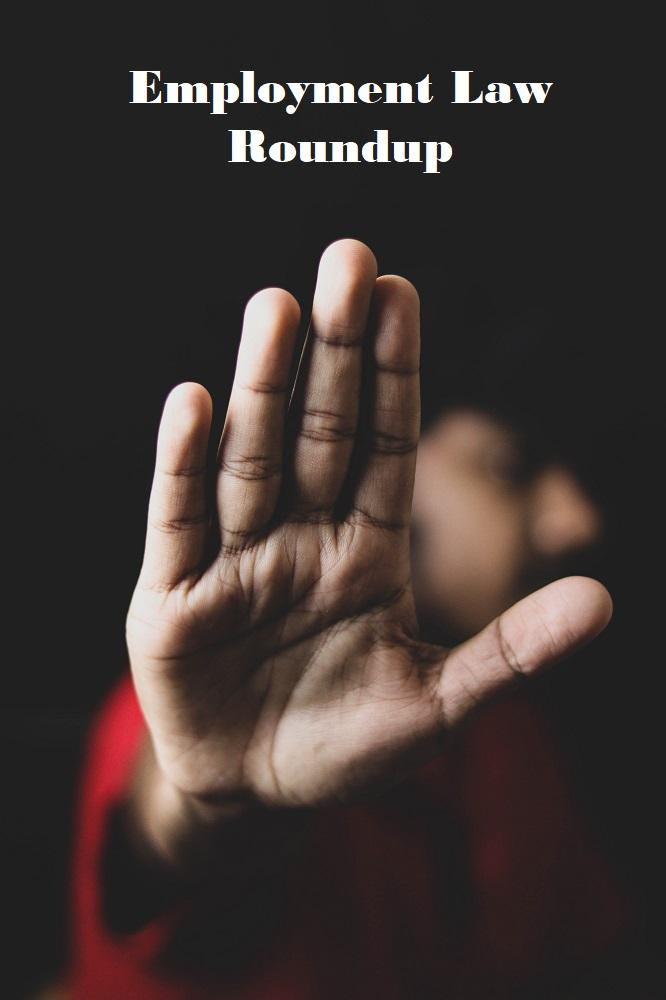Ending Forced Arbitration of Sexual Assault and Sexual Harassment Act
Last week, President Biden signed the Ending Forced Arbitration of Sexual Assault and Sexual Harassment Act, which became effective immediately, on March 3, 2022.
This law amends the Federal Arbitration Act to give employees bound by arbitration agreements with their employers the right to sue over claims of sexual assault or sexual harassment.
In other words, an employee who has signed an employment agreement requiring all disputes to be arbitrated rather than litigated in court now has the option of ignoring that agreement and filing a lawsuit in court instead.
The new law does not, however, apply to claims that accrued before March 3, 2022. Nor does it affect claims that that are unrelated to sexual assault and sexual harassment.
The relevant language is:
[A]t the election of the person alleging conduct constituting a sexual harassment dispute or a sexual assault dispute, or the named representative of a class or in a collective action alleging such conduct, no predispute arbitration agreement or predispute joint-action waiver shall be valid or enforceable with respect to a case which is filed under Federal, Tribal, or State law and relates to the sexual assault dispute or the sexual harassment dispute.
A sexual assault dispute is defined as “a dispute involving a non-consensual sexual act or sexual contact” as those terms are defined in federal, tribal, or state law, “including when the victim lacks capacity to consent.”
Similarly, a sexual harassment dispute is defined as “a dispute relating to conduct that is alleged to constitute sexual harassment under applicable federal, tribal, or state law.”
Compensability of Time Employees Spend Being Tested or Vaccinated for COVID-19
A fact sheet published by the Department of Labor (DOL) in January discusses the factors to be considered in whether an employer is required to compensate its nonexempt employees for time spent being vaccinated or tested for COVID-19.
These factors are:
When the activity occurred; and
Whether the activity is due to a vaccine mandate or a vaccine/test option.
The DOL makes clear that if the employer requires the activity during normal working hours, the work time is compensable, whether or not the employee is at the worksite during that time.
This same reasoning applies to temperature checks and other COVID-related health screenings during working hours.
If the activity occurs outside of normal working hours, then the time spent being vaccinated is compensable if the employer has a vaccine mandate.
In that situation, testing time is compensable for an employee who is unable to be vaccinated because of a disability or religious reasons when the employee’s accommodation is regular testing.
Remember that your state or local laws may have different rules regarding compensability, so be sure to check those before deciding on a policy for your employees.
Employee Noncompetition Agreements
The Antitrust Division of the US Department of Justice (DOJ) has, through a court filing in a Nevada case, indicated that some noncompetition agreements between employers and employees may violate the antitrust laws.
The Nevada case was filed by a group of anesthesiologists against Pickert Medical Group, which employs approximately two-thirds of all permanently employed anesthesiologists in Northern Nevada. Each of these anesthesiologists is subject to a noncompetition agreement for two years after termination of employment.
Contractually, Pickert is the only supplier of anesthesiologists for Renown Region Medical Center, which is the only provider of complex surgical care in the region, and also has the only trauma center in the region.
When Renown decided to terminate its agreement with Pickert, the anesthesiologists sued, challenging their noncompetition agreements.
According to the DOJ, some noncompetition agreements, such as the one in the case at issue, may be per se illegal horizontal agreements among competitors. This is because the employees were anesthesiologists who, in addition to being employees of the defendant medical group, were also potential competitors of the medical group.
The DOJ also indicated that noncompetition agreements might violate the federal antitrust laws even if they are “ancillary” or “vertical” because these agreements may restrict so many individuals as to be a significant restraint on competition.
While these concepts are too complex to cover in this Alert, and while DOJ’s opinions as expressed in this case are not binding, they do indicate the opinions of the DOJ and, most likely, the Biden administration.
This means that employers and employees alike should carefully follow any changes to federal law concerning these types of agreements.
*****
Whether you are an employee or an employer, please feel free to contact us if you have any questions about any of the above updates or any other employment-law issues.
For more information about employment law, see Employment Law (in Plain English)®, co-authored by members of this law firm. The book is available through Skyhorse Publishing, Amazon, Barnes & Noble, Powell’s Books, and Bookshop (an online bookstore that allows you to support your favorite independently owned bookstore).
Photo by Salman Hossain Saif on Unsplash






